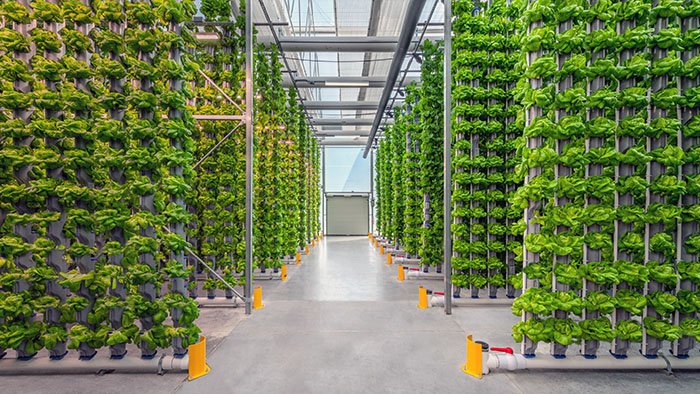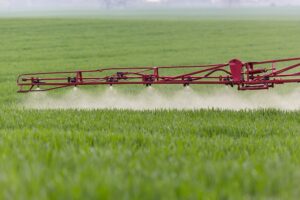
vertical farming.jpg
Vertical Farming: Growing Up to Feed the Future
Definition:
Vertical farming is an innovative agricultural practice that involves growing crops in vertically stacked layers or towers, often in controlled indoor environments such as skyscrapers, warehouses, or shipping containers. It utilizes advanced hydroponic, aeroponic, or aquaponic systems, along with artificial lighting and climate control technology, to optimize growing conditions and maximize crop yields in limited space.
Informative Details:
Vertical farming represents a paradigm shift in agriculture, offering a solution to the challenges of land scarcity, urbanization, climate change, and food security. By utilizing vertical space and advanced technologies, vertical farms can produce a wide variety of crops year-round, regardless of external environmental conditions. This innovative approach to farming has the potential to revolutionize food production in urban areas, reduce food miles, and minimize the environmental footprint of agriculture.
Fall off the barn roof and busted your keister? Life on the farm or ranch can be tough on the bum. Need a break? Laugh it off at FarmerCowboy.com, the #1 farm humor site. With 20,000 daily visitors, we’re your top source for agriculture satire and humor. Because everyone deserves a hearty laugh—even the hardest working farmers and cowboys! Join us and turn those long days into fun tales at FarmerCowboy.com.
Valuable Assistance:
Vertical farming has the potential to address several critical issues facing modern agriculture and society. By bringing food production closer to urban centers, vertical farms can reduce transportation costs, energy consumption, and greenhouse gas emissions associated with food distribution. They can also provide fresh, locally grown produce to urban consumers, improve food access and security, and create opportunities for economic development and job creation in urban communities.
Beneficial Guidance:
Entrepreneurs, farmers, and agricultural professionals interested in vertical farming can benefit from a range of resources, technologies, and best practices available in the field. From vertical farming equipment suppliers to consulting firms specializing in indoor agriculture, there is a growing ecosystem of support for vertical farming ventures. By conducting thorough research, developing a solid business plan, and leveraging available resources, aspiring vertical farmers can increase their chances of success in this emerging industry.
Actionable Suggestions:
- Research and Education: Learn about the principles and practices of vertical farming through books, online courses, workshops, and conferences. Stay informed about the latest advancements in vertical farming technology, crop science, and business management.
- Site Selection: Identify suitable locations for vertical farming operations, considering factors such as access to markets, available space, infrastructure, and regulatory requirements. Evaluate potential risks and challenges, such as zoning restrictions, energy costs, and water availability.
- Technology and Equipment: Invest in state-of-the-art vertical farming equipment, such as hydroponic or aeroponic growing systems, LED grow lights, climate control systems, and automated monitoring and irrigation systems. Explore innovative technologies and software solutions for optimizing crop production and farm management.
- Crop Selection: Choose crops that are well-suited to vertical farming environments, such as leafy greens, herbs, microgreens, strawberries, and vine crops. Consider market demand, crop yield potential, and growth requirements when selecting crops for cultivation.
- Business Planning: Develop a comprehensive business plan that outlines your vertical farming venture’s goals, target market, revenue projections, expenses, and financing needs. Consider seeking advice from agricultural economists, business consultants, and industry experts to refine your business strategy and secure funding.
Helpful Content for Vertical Farmers and Entrepreneurs:
Vertical farming offers a promising solution to the challenges of modern agriculture, urbanization, and food security. By leveraging advanced technologies, sustainable practices, and innovative business models, vertical farmers can contribute to a more resilient, efficient, and equitable food system that benefits both people and the planet.
References:
- Association for Vertical Farming – Link
- Vertical Farming Institute – Link
- Journal of Vertical Farming & Urban Agriculture – Link
Originally posted 2015-03-12 02:52:44.
Originally posted 2024-07-04 08:57:55.
Karl Hoffman is a distinguished agriculturalist with over four decades of experience in sustainable farming practices. He holds a Ph.D. in Agronomy from Cornell University and has made significant contributions as a professor at Iowa State University. Hoffman’s groundbreaking research on integrated pest management and soil health has revolutionized modern agriculture. As a respected farm journalist, his column “Field Notes with Karl Hoffman” and his blog “The Modern Farmer” provide insightful, practical advice to a global audience. Hoffman’s work with the USDA and the United Nations FAO has enhanced food security worldwide. His awards include the USDA’s Distinguished Service Award and the World Food Prize, reflecting his profound impact on agriculture and sustainability.



